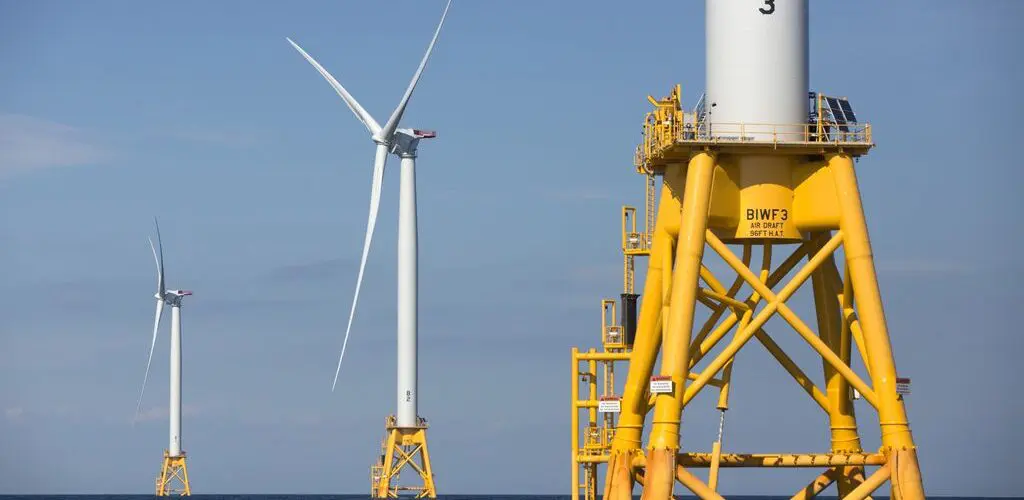Federal regulators uphold controversial grid proposal that could slow clean energy
Despite months of protests by clean energy activists and official pleas from public figures including Elizabeth Warren, federal regulators approved a plan by the region’s energy grid operator that could slow the development of clean electricity for two years.
The decision, handed down by the Federal Energy Regulatory Commission ( FERC), late Friday night, affirms a plan by ISO New England to wait two years to remove a mechanism that makes it harder for clean energy projects to enter the competitive market, rather than doing it immediately.
The decision came after months of outcry, including from Senators Ed Markey, Elizabeth Warren, and Bernie Sanders, Attorney General Maura Healey, former state energy and environment secretary Kathleen Theoharides, and scores of clean energy and climate advocates.
It also came with the apparent reluctance of a majority of FERC commissioners, several of whom wrote that they would have preferred to see the mechanism in question — called the Minimum Offer Price Rule (MOPR) — removed by ISO-NE immediately. “Simply put, ISO-NE could have, and should have, done better,” wrote FERC chairman Richard Glick in his comments.
Advocates in the region said they were disappointed by the decision, noting the FERC decision called the grid’s proposal “a just and reasonable outcome” — with the emphasis on “a” — and not the best outcome.
“We’ve been delaying a long time on removing this barrier to clean energy,” said Melissa Birchard, director of clean energy and grid reform for the advocacy group Acadia Center. “And the result is that we’re in a bit of a bind with fossil fuels right now, including the increasing costs of liquefied natural gas, which is an international market that is deeply affected by the events in Ukraine.”
ISO-NE, meanwhile, says that allowing for a two-year transition period before lifting the MOPR is a necessary safeguard to ensure grid reliability. “We’re pleased that the Commission saw this proposal for what it is — a reasonable step forward on New England’s transition to a decarbonized future,” ISO-NE spokesman Matthew Kakley said in a statement.
Kakley noted that during the two year transition period, there will be an allowance for 700 MW of clean energy resources to enter the market, though advocates say that amount is insufficient to meet the region’s clean energy demands. Massachusetts currently has authorized the procurement of 5,600 MW of offshore wind — to say nothing of its battery storage or utility-scale solar projects.
The minimum offer price rule limits what energy projects can bid into what’s known as the forward capacity market. Developers with successful bids are able to procure financing three years in advance, helping ensure that projects have the needed funds to be developed or expanded, and that the grid will have enough energy available in the future.
The minimum offer price rule was created to help insulate fossil fuel power plants from having to compete against renewables that cost less due to state programs and subsidies that exist to help foster clean energy development. It created a floor below which a developer cannot bid, meaning that those less expensive energy supplies, like large-scale offshore wind or solar, aren’t able to compete.
The fear from regulators and the fossil fuel industry was that without such a rule, fossil fuel plants could be forced offline before adequate clean energy was ready to fill the void on the grid, creating reliability problems. The effect has been that fossil fuel-fired power plants have been able to secure bids around the region, despite increasingly ambitious climate plans from the New England states that would indicate otherwise.
Advocates say that in the short term, the decision is a bad deal for consumers in the state. “Let’s say I have a hypothetical wind project that I want to bring online three years from the next auction,” said Jeff Dennis, managing director and general counsel at Advanced Energy Economy and a former director of FERC’s division of policy development. “If I offer in today and get subject to the minimum offer price rule, I get bounced out of the auction,” he said.
If the state goes ahead and builds the projects — as Massachusetts and other New England states are doing — then when that project comes online, consumers will be paying more for their energy, because they will be paying for the energy from the wind project, and for the energy that was already purchased on the forward capacity market three years earlier.
“I think the real risk here is the disconnect that a rule like the minimum offer price rule creates between the ISO New England and its markets and its states and their objectives,” Dennis said.
Converting the region’s energy grid from fossil fuel to clean energy is a key piece of New England’s climate future. As states race to electrify buildings and transportation, the demands on the grid are only going to grow. But if that electricity is still being generated by fossil fuels, emissions reductions goals in the region will not be achieved.
In Massachusetts, getting this clean energy on board quickly is central to achieving the legally mandated goals of slashing emissions to 50 percent of 1990 levels by 2030, and getting to net-zero by 2050. But Massachusetts isn’t alone. Four other New England states — Connecticut, Maine, Rhode Island, and Vermont — have committed to reducing economywide emissions by at least 80 percent below 1990 levels by 2050.
“This delay limits the ability of renewable resources to access the capacity market,” said Eric Wilkinson, electricity market policy director for offshore wind company Ørsted. “When ISO New England urged stakeholders to support the delay, they cited potential reliability concerns as a justification. However, the ISO has itself noted that offshore wind will increase system reliability, especially during the winter months when the concern is the greatest.”
Read the full article in The Boston Globe here.




















Follow us